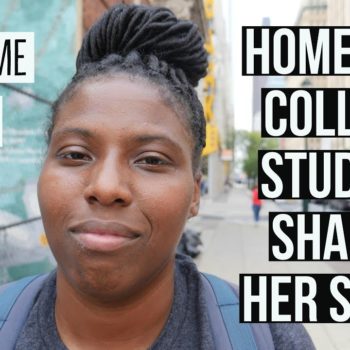Across the United States, the cost of higher education continues to rise. For many students, it is incredibly challenging to earn enough money to survive while they are going to school.
The fact higher education costs have risen at a rate 8 times higher than wages over the past 35 years compounds the problem.
In the past decade, tuition and other fees at public four-year colleges has increased by an average of $2,670. Despite this, more low-income students are attending college. But, they often struggle with problems like food insecurity and homelessness.
In addition, students attending public universities, like The University of Vermont, have a much easier time accessing federal student aid than those at state community colleges. Furthermore, students at community colleges, are likely to pay much higher tuition fees.
The Disparity Between the Cost of Public Universities and Community Colleges
Hallie Golden writing for Citylab, highlighted the disparity of cost America’s higher education students are facing:
“Low-income UC San Diego students pay about $9,900 annually out of pocket … Attending a community college in San Diego, meanwhile, costs about $14,500 a year, similar to Los Angeles, but less than in some places. In Sacramento, where year-over-year rent increases have been some of the highest in the country recently, UC Davis costs about $8,000 annually, out of pocket, while community college costs about $19,600.”
Students attending the University of California pay 56% higher tuition expenses than students at California Community Colleges. The UC students, however, receive 300% more financial aid.
For many community college students, homelessness and economic uncertainty is being driven by lack of access to Federal Financial Aid.
Legislative Efforts to Address Higher Education Costs and Student Homelessness
In February of 2019, Washington State Senator Emily Randall joined a group of state and federal legislators around the country trying to address the cost of education and student homelessness.
Her bill, SB5800, launches an ambitious program, which would “would provide community college students with everything from laundry, shower facilities, and food banks to short-term housing, or housing assistance, and case management services.”
Senator Connie Leyva of Chino, California has also recently announced a bill that would “give aid to both full- and part-time students based on the cost of living at each campus. It would require $250 million from the state’s general fund in its first year, rising to $1.5 billion by 2024.
“Yes, there is a big price tag attached to this,” said Leyva. “This is our future and our students at community colleges are our future … Community college, which is supposed to be the most accessible for everyone, is becoming the least accessible.”
Marc Berman of Palo Alto, California also recently introduced a bill that would “mandate community colleges consider allowing overnight parking for homeless students.”
According to KQED, “Community college students make up nearly two-thirds of California’s undergraduates, and a recent survey found almost 1 in 5 have been homeless in the last year. Most have jobs.”
By providing overnight parking, California legislators will be taking steps to ensure the safety and security of potentially vulnerable students.
The Hope Center recently compiled the #RealCollege Survey of Community College Students in California.
Among 40,000 students at 57 California Community Colleges, the results indicate:
- 50% of respondents were food insecure in the prior 30 days
- 60% of respondents were housing insecure in the previous year
- 19% of respondents were homeless in the previous year
State legislators across the country are also addressing relief from higher education costs.
Ending Student Homelessness is a Vital Priority
No one should be without a home – not mothers, fathers, sisters, brothers, families, workers, students – no one.
Education is extremely important, but it should not be extremely expensive. The time has come for America to take a good hard look at its values. We must take steps to reduce the cost of higher education and ensure no student is homeless. America is far too prosperous and far too innovative to continue to sit back and watch as so many of our fellow citizens struggle and face homelessness.













